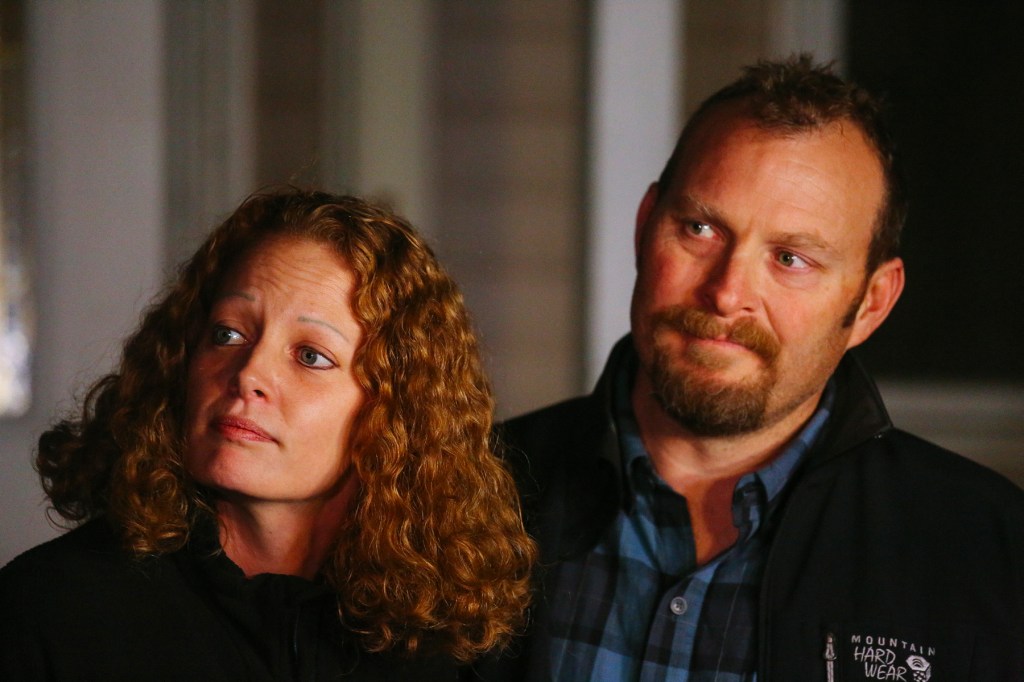We are a group of Maine health professionals who are concerned about the epidemic of fear spreading in Maine and elsewhere about Ebola.
• First, here are a few facts that we hope are helpful: We recognize that people are concerned about Ebola and there is a lot of conflicting information out there. However, it is reassuring that the World Health Organization and many other public health agencies have 40 years of experience with Ebola.
This is not a new virus. The current outbreak in three West African countries is behaving the same as others, but has spread there because of extremely poor conditions as well as a lack of an adequate public health system and sufficient health workers to contain it.
The science and experience of many indicates that Ebola is contagious only once symptoms have occurred. Body fluids such as blood and vomit are most infectious in advanced stages of the disease. That is why the only two people to have contracted Ebola in the United States are two nurses who cared for a patient in Texas in the very end stages of the infection, and we understand the nurses were not fully protected.
• Second, quarantining all health care workers without symptoms upon their return from caring for Ebola patients in the affected countries may be well intended, but it is not supported by the science or experience.
Even if a health care worker were unknowingly exposed to the Ebola virus while working in an affected area, 40 years of experience and biological evidence show they are not contagious before symptoms are present. This evidence also indicates that fever usually precedes the contagious stages, allowing time for people to identify themselves and be isolated before they can transmit it to others in the community.
Health care workers returning from affected areas of West Africa are instructed to monitor their temperature, and are isolated at the first signs of the disease. The case of a returning physician with Ebola in New York City is an example of this system working. Recent guidelines from the U.S. Centers for Disease Control and Prevention have established recommendations for regular monitoring of health care workers and others who may have been exposed to Ebola to identify the earliest indications of illness.
• Third, unnecessarily quarantining these returning health care workers can have a devastating impact on the efforts to stop Ebola at its source and ultimately here.
Most American health care providers working there are doing so selflessly as volunteers for several weeks. Very often they can take only a limited amount of time off from work, and are unable to take three more weeks off for quarantine when they return. They and their families should not also have to face stigma and anger. Reports from aid organizations indicate that unnecessary quarantines and stigma are already negatively impacting the number of volunteer applicants to assist with the outbreak in parts of West Africa.
Centuries of experience with epidemics show that Ebola must be stopped at its source in order to prevent its spread elsewhere. To accomplish this, we need many thousands of health care workers to volunteer in the three affected countries in West Africa, and at this time we are far short of that. Unnecessary quarantines impede these efforts.
Everyone needs assurances with the facts. We also need assurances that returning workers will be monitored and advised, including active monitoring by state officials when warranted, according to the set guidance by the U.S. CDC. And very importantly, by Americans helping to contain this outbreak at its source, all of us are safer.
Ultimately we need to be guided by science and not emotion. An epidemic of fear can be as dangerous as an epidemic with a virus.
We are joined by our colleagues representing the Maine Public Health Association (Tina Pettingill, M.P.H., executive director) as well as other distinguished Maine public health and health care leaders, including: Kathleen Gensheimer, M.D., M.P.H. (state epidemiologist, 1981-2009); Jennifer K. Jubulis, M.D. (infectious disease specialist, Maine Medical Center); Lisa Letourneau, M.D., M.P.H.; Dervilla McCann, M.D.; Carol A. McCarthy, M.D. (director of pediatric infectious disease, MMC); Steve Meister, M.D., M.H.S.A.; Peter Millard, M.D., Ph.D.; Dora Anne Mills, M.D., M.P.H. (state health officer, 1996-2011); Daniel Oppenheim, M.D. (co-chair of the Public Health Committee of the Maine Medical Association); Stephen Sears, M.D., M.P.H. (state epidemiologist, 2011-2014, and infectious disease specialist); Rhonda Selvin, A.P.R.N. (president of the Maine Nurse Practitioner Association); Robert P. Smith Jr., M.D., M.P.H. (director of infectious diseases, MMC); and Erik Steele, D.O.
Send questions/comments to the editors.


